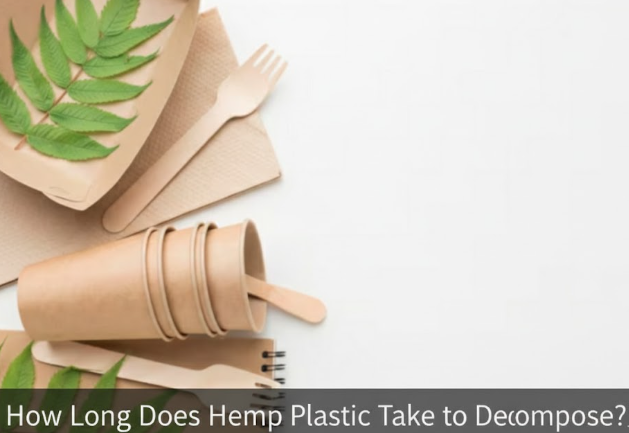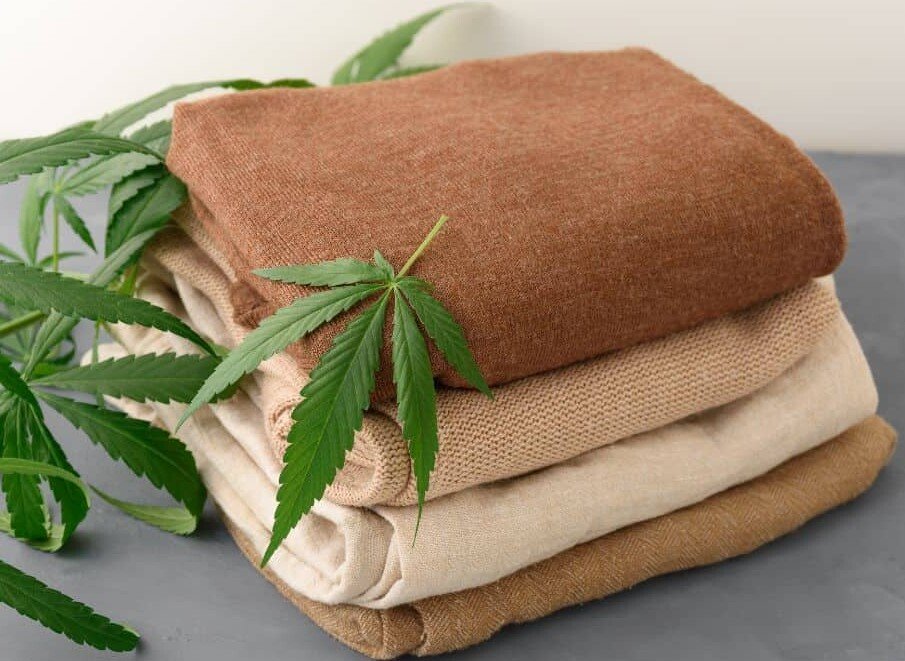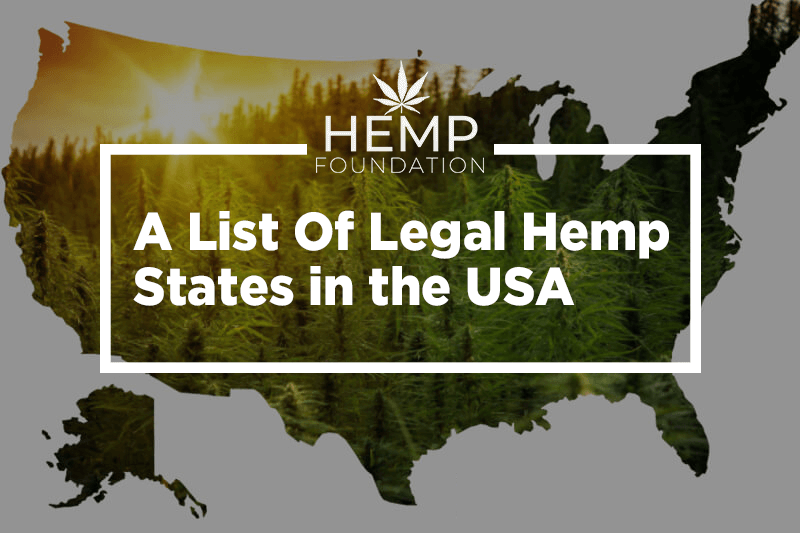How Long Does Hemp Plastic Take to Decompose?
Let’s start with a simple question: what really happens to plastic once we throw it away?
Most of it doesn’t go anywhere.
Conventional plastics stay in landfills and oceans for centuries.
There it slowly breaks into microplastics that never fully disappear.
That’s what makes hemp plastic sound so promising.
It’s designed to return to nature, breaking down in a fraction of that time. Some reports even suggest it can decompose within months under the right conditions.
But how true is that claim? And what does “right conditions” really mean?
In this article, we’ll take a closer look at:
- How hemp plastic behaves after disposal
- The factors that affect its decomposition timeline
- And how it compares with traditional petroleum plastics.
Let’s find out how fast “biodegradable” really is when it comes to hemp.
What Is Hemp Plastic and How Is It Made?
Before we investigate the decomposition of hemp plastic, it will be worthwhile to first understand what hemp plastic is.
Hemp plastic is a type of bioplastic made from the stalks of the hemp plant (cannabis sativa), especially the cellulose-rich fibers.
- At first, cellulose is extracted from hemp stalks,
- It is processed into pellets and resin,
- The resin can then be extruded and shaped into products.
Common hemp plastic products include packaging film, garbage bags, carry bags, cutlery, etc.
There are two possible types of hemp plastic available:
- The first is pure hemp plastic without any other raw material.
- Hemp plastic composites are blended with synthetic polymers.
The reason this matters is that it affects the decomposition timeline of hemp plastic.
Now let’s move to the real question: How long does hemp plastic take to decompose?
How Long Does Hemp Plastic Take to Decompose?
This is a question I hear the most, and I will answer it without any ifs and buts.
Here is the short version – under optimal composting conditions, hemp plastic biodegrades in as little as 3 – 6 months.
That is a huge improvement over traditional plastics, which take 400 – 800 years.
To put it in perspective, the plastic bottle on your table will likely be around in some form when your great-grandchildren are alive.
A hemp plastic bottle would decompose by the time the next season rolls around.
From Freepik
But let us not oversimplify. Some key factors are necessary for the rapid biodegradation of hemp plastic.
These are:
- The specific composition of the product (whether it is pure hemp or blended),
- The temperature and moisture where it’s disposed,
- The amount and diversity of microorganisms present to break it down.
The European Composting Standard EN 13432 states that a plastic is compostable if it decomposes by 90% to CO₂ and water in six months at 58°C. Pure hemp plastic products absolutely meet this criterion.
Under the right conditions, ‘gone in six months’, is not a marketing ploy. It is real and provable.
The next question is: What are the main factors that influence how quickly hemp plastic actually disappears?
What Factors Affect Hemp Plastic Decomposition?
For hemp plastic to decompose quickly, careful attention has to be paid to where and how it is disposed of.
Composting vs Landfill
The quickest way to biodegrade hemp plastic is at an industrial composting facility. These places maintain a controlled environment with high humidity, ~80% and a temperature of about ~55°C. There are also plenty of bacteria that help in the decomposition. At such a facility, most hemp plastic will biodegrade in six months.
In a home compost bin where the temperature is cooler and the air has less moisture, the process slows down considerably. However, if you turn it over once every couple of months, there is complete biodegradation of hemp plastic in about a year.
At a landfill, there is a lack of oxygen. It takes a few years for hemp plastics to decompose. Of course, it will break down in a decade, and that is far better than conventional plastic.
Material Composition Matters
As I have said before, composition matters. Pure hemp plastic always biodegrades perfectly, leaving behind carbon dioxide, water, and biomass. When it is blended with synthetic polymers, the degradation produces tiny microplastics. This is not at all desirable, and you should aim to use plastics made from pure hemp to reduce your carbon footprint.
Environmental Variables
Hot and humid climates definitely speed things up. Such conditions favour the growth of bacteria, which helps the road biodegradability of hemp plastic. A slightly alkaline pH also helps since acidic pH prevents bacterial growth. Last but not least, a variety of bacterial organisms – bacillus, pseudomonas, streptomyces, cellulomonas – are necessary.
Hemp Plastic vs. Other Plastics: Which Decomposes Faster?
Let’s now put the hemp plastic decomposition timeline into context.
If you compare it with traditional plastics like polyethylene (PE) or polypropylene (PP), the difference is indeed striking. These petroleum-based polymers can take several hundred years to break down. But toss a hemp plastic bag into a composting facility, and it will be gone in three months.
When we consider PLA (polylactic acid), a widely used bioplastic, it requires six months to break down. In a home compost, PLA lingers on for a year.
PHA (polyhydroxyalkanoates) stands out as a gold standard. It decomposes fully in under six months in compost.
Here’s a simple comparison table.
Material | Industrial Compost | Soil/Home Compost | Marine Environment | Landfill |
Hemp Plastic | 2–6 months | 6–12 months | Data limited | Years (still faster than PE/PP) |
PLA | 6+ months | Years | Minimal | Decades+ |
PHA | <6 months | <1 year | 2–4 years | 1–5 years |
Conventional PE/PP | Not compostable | Centuries | Centuries | Centuries |
The answer is clear: hemp plastic leads the pack in biodegradation when conditions are right.
What Happens When Hemp Plastic Decomposes?
This is where hemp plastic’s true environmental advantage comes into focus.
When it decomposes, the end products are carbon dioxide, water, and biomass. If you are disposing of pure hemp plastics, you will find no microplastics or toxic residues left behind.
However, if the product is blended, some microplastics may remain behind as the non-biodegradable portion lingers.
From Pexels
But when we use and dispose of hemp plastic the way it’s designed, its environmental impact is entirely positive:
- Zero long-term waste,
- No toxic chemicals,
- And a material that helps close the carbon loop by returning nutrients to the earth.
In Conclusion
Here’s the bottom line,
Hemp plastic decomposes in a matter of months under the right conditions. This makes it one of the most promising solutions to the fight against plastic pollution.
By choosing certified compostable products and building composting infrastructure, we can unlock the true potential of hemp plastics.
Frequently Asked Questions
Does hemp plastic decompose?
Yes, hemp plastic decomposes quickly. In an industrial composting facility, it breaks down in as little as 3 – 6 months.
How long does it take for hemp plastic to decompose?
Under proper conditions with 80% humidity and ~55° – 60°C temperature, hemp plastic biodegrades in 3 – 6 months. In your backyard, the process is longer and may take up to a year. At a traditional landfill, it takes a few years.
Is hemp plastic 100% biodegradable?
Pure hemp plastic is entirely biodegradable. In all cases (industrial composting facility, home composting bi, and landfill) hemp plastic decomposes, leaving behind carbon dioxide, water, and biomass.
Does hemp plastic leave microplastics behind?
Pure hemp plastic biodegrades, leaving behind no toxic residue. If it is blended with artificial polymers, those polymers leave behind microplastics and other chemicals.
Can hemp plastic replace regular plastic?
Hemp plastic is versatile and eco-friendly. Hemp fibres are very strong, and hemp composites are far tougher than their conventional plastic alternatives. Hemp plastic is a promising sustainable alternative to petroleum-based plastics and is currently being used for packaging and as automotive parts.
Vishal Vivek
Vishal Vivek is the Founder and CEO of Ukhi, a pioneering bio-materials company dedicated to ending plastic pollution by converting agricultural waste into high-performance compostable polymers. With a background in sustainable entrepreneurship and over a decade of technology experience, he leads Ukhi’s vision to create scalable, planet-positive material solutions. Previously, Vishal founded the Hemp Foundation, where he empowered more than 1,000 farmers and advanced sustainable livelihood initiatives. His work has been recognized through awards such as the HDFC Parivartan Grant and featured in leading publications like Forbes and Entrepreneur. Times Group recognized him as a legendary entrepreneur and published his biography in “I Did IT- Vol 2” alongside social pioneers like Bindeshwar Pathak (Sulabh International) and Anshu Gupta (Goonj). Vishal has authored more than 200 articles on sustainability and hemp, reflecting his deep expertise and advocacy for regenerative solutions. His commitment to grassroots impact led him to live in the remote mountains of Uttarakhand, where he immersed himself in the lives of marginal farmers, understanding their challenges and co-creating economic opportunities through hemp-based initiatives. A deeply passionate innovator, Vishal often draws inspiration from seemingly impossible achievements: “If Elon Musk can make rockets reusable, or Dashrath Manjhi can carve a path through a mountain with rudimentary tools, why can’t we eliminate the demon of single-use plastic while uplifting struggling farmers? We will make it happen—whatever it takes.” Ukhi is proud to be supported by premier institutions including IIT Guwahati, NSRCEL-IIM Bangalore, Indian School of Business (Hyderabad), Indian Council of Agricultural Research (ICAR Pusa), and the Indian Institute of Packaging. Vishal is committed to demonstrating that business can be a powerful catalyst for global environmental and social good. Connect with Vishal Vivek
Related Posts
Everything to Know About Hemp Fabric
Clothing is a major constituent of our overall personality, and it is true when we say that dressing
Are Hemp Plastic Bags the Future? Science Says Yes
We all know this tug-of-war. We need eco-friendly plastic alternatives. But, we love convenience.
A List Of Legal Hemp States in the USA
The relationship between hemp and the US has always been quite complicated, as you’d get to know w





